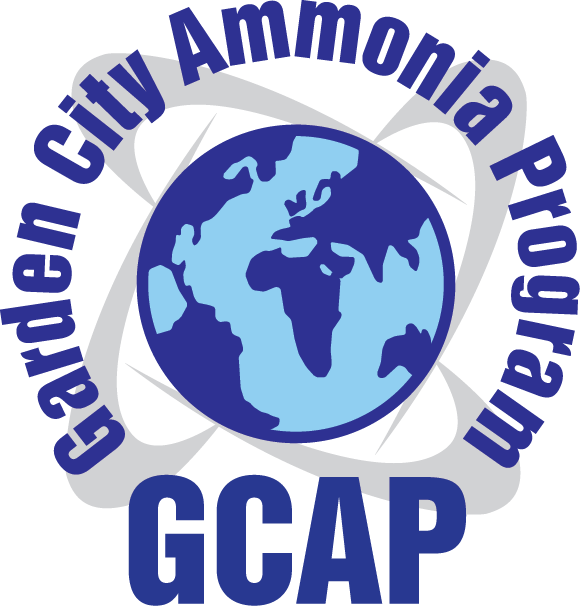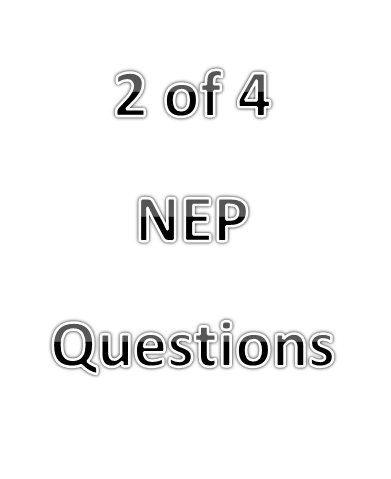Part 2 of 4: NEP Questions?
The Process Safety Management (PSM) regulations is over 20 years old and the National Emphasis Program (NEP) is nearing five years, and the regulators are not slowing down. Recent alerts from EPA (anhydrous ammonia at refrigeration facilities under scrutiny) and OSHA (RAGAGEP in PSM enforcement) show their passion for compliance. President Obama has signed executive orders and mandated re-writes of PSM/RMP regulations. This is occurring now. End users in our industry have to understand this is nothing more than a mandated maintenance management program.
A database has been developed of every question asked by OSHA. It all started with the filing of Freedom of Information Requests for the past five years for all the PSM citations issued in the United States. Hundreds of NEP questions, pictures, videos, and testimony have been gathered. This was the basis of the research for the PSM/RMP book, “Implementing Process Safety Management for Ammonia Refrigeration 4th edition”.
The four top PSM violations the last two years by element are: mechanical integrity, SOP’s, PHA’s, and training. This article is part two of four covering SOPs.
1910.119(f) SOP Operating Procedures: Questions for Maintenance/Operation Personnel
- Have written operating procedures (SOP) been developed for the covered process?
- Where are the written operating procedures kept?
- Are operating procedures readily accessible to you at all times?
- Have you been formally trained in the operating procedures of this facility?
- Do operating procedures provide clear instructions for safely conducting activities?
- Do the operating engineers review the SOP’s to be sure that they are kept current?
- When did you receive training in safe work practices (LO/TO; hot work permits; confined space) last?
- Were written examinations administered?
- Are there adequate precautions provided in the operating procedures for PPE, exposure and release response?
- How do you handle the deviation from the procedures?
- Do you have access to operating procedures for you work activities/tasks?
- Are the operating procedures accurate for all phases of operation?
- What are the different phases of operation?
- If a change needs to be made to a SOP, describe the process of making this change.
- Have you been consulted on or involved with writing/reviewing operating procedures?
- Do your operating procedures contain process operating limits?
- Do you know if the operating procedures are updated each year?
- What do you do if your procedure will not work for the operation at hand?
- Are the SOP’s you are using today the most current revisions and how do you now that they are?
- Do you know if the facility retains annual verification such as a written certification to acknowledge the SOPs are current and accurate?
- Does your company use the MOC process to keep SOPs up to date?
- Does the MOC process suffice as a system to keep them up to date?
- How are you informed of procedure changes?
- Have you ever had an emergency shutdown of the system?
- When the system is shut down by a safety cutout, are corrections made in a timely manner and necessary safety means taken to assure safe operation?
- If a part of the system should shut down due to a high level in a vessel, how do you handle it?
- Would you want to perform an emergency shutdown if you had a leak?
- What happens if the power goes off?
- Does the ventilation system still run if the e-stops are pushed?
- What happens if a control does not work?
- What happens if you lost computer control over defrost?
- What do you do if a piece of equipment was to break/fail?
- Who repairs faulty equipment?
- Do you know the difference between NOP, EOP, and ESD SOPs?
- How do you know that safeguards are doing their job to mitigate hazards?
- What would you do to stop a leak?
- Have you ever had to shut down your system?
- Do you have a procedure for emergency shutdown?
- Do you know who has to be involved in an emergency shutdown?
- Do you have kill button/switches outside your engine room?
- Do you have kill/button switches inside your engine room?
- Have you ever participated in any drills for emergency shutdowns?
- Have you even participated in any drills for emergency procedures?
- Are the operating procedures written at a level that refrigeration personnel could effectively utilize them?
- Do written operation procedures provide clear instructions for purging of process piping before disconnecting?
- Do you follow written SOPs for draining oil from any location from your system?
1910.119(f) SOP Operating Procedures: Questions for supervisors/managers/coordinators
- Have written SOP’s been developed for the refrigeration system?
- Are written SOP’s implemented?
- Who can perform the SOP’s?
- Are safety procedures in place prior to start-ups?
- Are operating procedures in place prior to start-ups?
- Are emergency procedures in place prior to start-ups?
- Where are the written SOP’s kept?
- Have you been formally trained in any of the SOP’s at this facility?
- How do you handle deviation from the procedures?
- Do operating engineers review the SOP’s to be sure that they are kept current? When does this take place?
- Does each system operator review the SOP once a year?
- What type of written program is implemented to assure that critical valves stay in their necessary position for operation?
- Were written examinations given for verification of understanding the SOP’s?
- Are there adequate precautions provided in the operating procedures for personal protective equipment?
- What are all the phases of operation that must be addressed in SOP’s?
- Who has the ability to change an SOP?
- If a change needs to be made to an operating procedure, describe the process of making this change.
- Have you been consulted on or involved with writing or reviewing the SOP’s?
- Do your operating procedures contain process operating limits?
- Do you operating procedures contain consequence of deviation?
- Do you know if the SOP’s are updated each year?
- Does you facility require an annual written certification that the SOP’s are current and accurate?
- Do you use the MOC program to keep SOP’s up-to-date?
- How are you informed of SOP changes?
- Have you ever had an emergency shutdown of the system?
- How is the annual certification performed for the SOP’s
- When a system is shut down by a safety cutout, are corrections made in timely manner and are necessary safety means taken to assure safe operation?
- How do operators know what area they may be in (normal, emergency, or emergency shutdown requirements)?
- If part of the system should shut down due to a high level in a vessel, how do you handle it?
- If part of the system should shut down due to a high level in a vessel, would you perform an incident investigation?
- What happens if the power goes off?
- What happens if a control does not work?
- What happens if equipment breaks/fails?
- How do you make sure that the safeguards doing its job to mitigate the hazard?
- What do you do to stop a leak?
- Have you ever had to shut down your system?
- Do you have a procedure for emergency shut down?
- Do you know who has to be involved in an emergency shutdown?
- Does your employer have a safe work practice for opening process equipment?
- Is there an operating procedure which covers communication and other activities involving shift changes?
- Are there written procedures for controlling situations where safety mechanisms (operational controls, interlocks, etc.) might be overridden?
- How do you know that your SOP’s are adequate?
- How do you know that your SOP’s are being followed?
- How do you know that your SOP’s are up to date?
- What is the training process like for new SOP’s?
- How do you know they understood the training of an SOP?
We hope that this article and others to come help you and your company. Compare this information to your own program. Do your guidelines address these questions? Are you ready for a NEP audit!!
Jeremy Williams, Directing Manager/Lead Instructor
Garden City Ammonia Program
An Industrial Refrigeration Training School
Located in Garden City, Kansas


